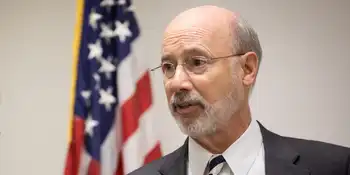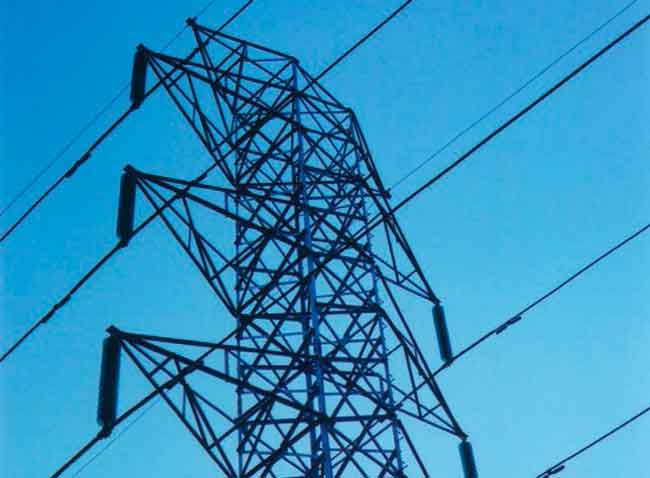Outrage prompts Allegheny Power to pledge refunds
By Knight Ridder Tribune
Substation Relay Protection Training
Our customized live online or in‑person group training can be delivered to your staff at your location.

- Live Online
- 12 hours Instructor-led
- Group Training Available
Jeff Trout, attorney for Allegheny Power, defended the program in a meeting with the state Public Service Commission, but he acknowledged that its execution was flawed. Allegheny Power's shareholders will pay the full cost of the $2.5 million program, he said.
"We continue to believe that the use of compact fluorescent lights is an essential step in attempting to accomplish the aggressive conservation goals that have been set by this state and which this commission is well into the process of pursuing," Trout said. "But we screwed up the implementation of this program, and because of those errors on our part we will eat all of the costs."
Other major state utilities - Baltimore Gas and Electric Co., Pepco and Delmarva Power - also have discount programs for compact bulbs that are or will be paid for through surcharges on customers.
Customers can buy the bulbs at Home Depot stores or Costco for a discount of $1.50 off individual bulbs and $3 off multipacks. Individual discounted bulbs start at $2.50 at Home Depot as a result and can cost less than $1 each when bought in packages of four.
"We are reviewing the issues that have been raised with Allegheny and have to determine whether any changes are warranted with our program," BGE spokeswoman Linda Foy said. Del. Kevin Kelly, an Allegany County Democrat, said he was pleased with Allegheny's decision. He said he still plans to introduce legislation that would bar the PSC from approving gas and electric utilities from sending unsolicited merchandise to customers and charging them for it.
"We're going to put this in law so this can't happen again," he said. Allegheny received complaints after it sent a pair of compact fluorescent light bulbs to most of its customers in December. Some customers did not receive them or said they arrived broken. Others said they had installed their own bulbs, did not have fixtures that could accept them or were not aware until reading news accounts that a 96-cent monthly surcharge would be levied or a year to pay for the program.
After a meeting with the PSC, the company said it would stop charging the fee and would refund money collected from its 220,000 residential customers since last fall.
The utility also pledged to:
- Suspend mailing bulbs unless customers specifically request them.
- Allow customers who received multiple mailings to keep the extras.
- Prepare a new bill insert about the program that the Public Service Commission will review before it is mailed.
- Run full-page advertisements in newspapers in it service area explaining the program.
- Work with state and local officials to develop a satisfactory bulb-disposal plan because some communities require spent or broken compact fluorescent bulbs, which contain a small amount of mercury, to be treated a hazardous waste.
The bulbs use electricity more efficiently than the incandescent bulbs that have lit homes for decades. Manufacturers have marketed 13-watt compact bulbs they say give off the same amount of light as a 60-watt incandescent bulb.
Utilities are seeking ways to respond to national and statewide calls to conserve energy. Gov. Martin O'Malley challenged state residents to reduce energy consumption by 15 percent by 2015, and Congress agreed in December to set efficiency standards for light bulbs that go into effect by 2012. The fluorescent bulbs are the only ones on the market that meet those standards.
Allegheny officials told PSC members that the bulbs that were mailed out would save a typical customer about $1 a month on electricity bills and would last as long as seven years. Thus, ratepayers could make up the cost of the surcharge within a year and would continue to save on energy costs.
Kelly and seven members of the General Assembly's Western Maryland delegation left Annapolis to attend the PSC meeting. Several said they had received more than 300 calls on this issue. Del. LeRoy E. Myers Jr., a Republican from Allegany and Washington counties, said he got calls from blind constituents who couldn't use the bulbs but were still paying the surcharge.
Del. Christopher B. Shank, a Washington County Republican, decried the lack of consumer choice in the Allegheny program. "This is an old model of command and control, government-knows-best, that this is the way we should conserve energy," he said. He described the utility's approach as "Here's your light bulbs, Soviet Union-style, screw them in and be happy.
"People were justifiably outraged by that," Shank said.
PSC members questioned elements of the program, including conflicting instructions or missing information in the materials sent with the light bulbs. For example, the bill inserts did not state that the 96-cent surcharge would pay for the bulb -by-mail program.
PSC Chairman Steven B. Larsen reminded the public that utilities used to pay for conservation programs through surcharges on its customers. The PSC gave fast-track approval to the mail program and accompanying surcharge last fall.
"It relieves upward pressure on prices, and everyone benefits," he said.
Allegheny Power's response to criticism of its programs "sets the standard that energy-efficiency programs have to be implemented in a pro-consumer way," said Johanna Neumann of Maryland Public Interest Research Group. It is important to fix the conservation programs rather than abandon them, she said.
Utilities haven't used such programs since deregulation a decade ago, she said, but "it's up to the PSC to hold them to a high standard. "The learning curve needs to be steep and can't be accomplished on the backs of consumers," Neumann said.
Paula Carmody of the state Office of the People's Counsel, an advocate for utility consumers, praised Allegheny's commitment. "I'm glad the company stepped up to the plate and acknowledged they made mistakes and it's their responsibility to rectify these problems," she said after the meeting.
She added that her office still supports the development and implementation of energy conservation programs.











